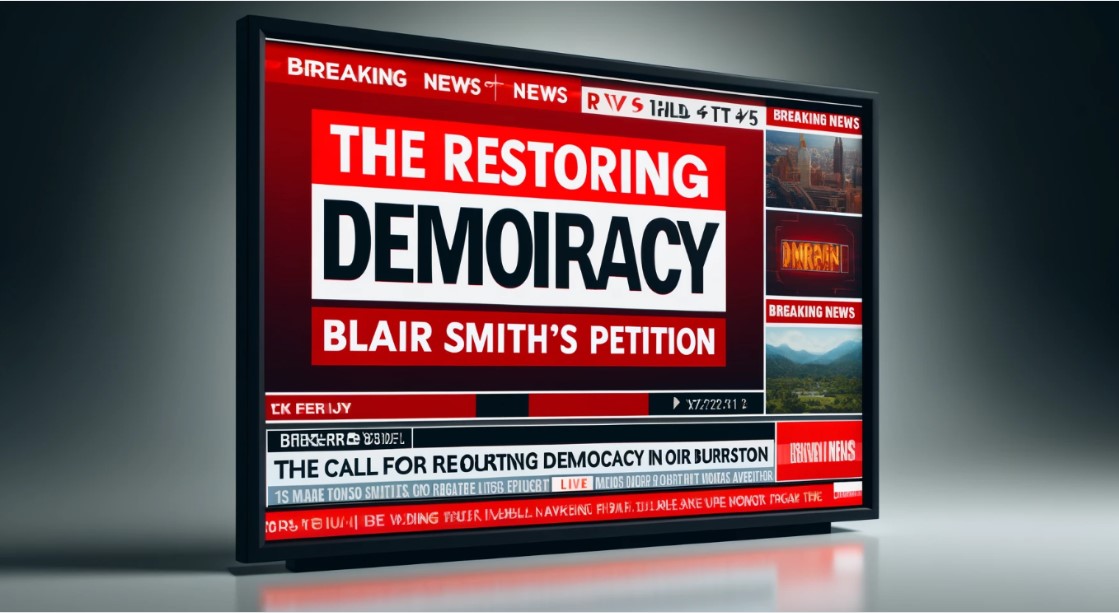Blair Smith, a passionate advocate for community engagement and citizen democracy, has taken a stand against what he perceives as a decline in citizen involvement and transparency within Burlington’s city council. In a move to address these concerns, Smith has initiated a petition titled “Restoration of Democracy at Burlington City Council” on change.org. This petition calls for Mayor Marianne Meed Ward to reconsider the strong mayor powers granted by provincial Bills 3 and 39, which have shifted significant responsibilities away from council and towards the mayor’s office.
Smith’s Concerns and the Petition’s Purpose
Smith’s disillusionment stems from what he views as a lack of respect for council delegations, manipulated public surveys, and a general disregard for meaningful citizen engagement in decision-making processes. He emphasizes that delegations to council should hold substantial influence if the city truly values community input. However, Smith believes that recent actions from city hall have rendered these efforts largely ineffective.
The petition’s primary goal is to urge Mayor Meed Ward to heed a motion put forth by three councillors, supported by a fourth, aiming to delegate some strong mayor responsibilities back to the council. Smith argues that the concentration of power in the mayor’s hands, including veto capabilities, budget preparation authority, and key appointments, contradicts democratic principles.
The Context of Strong Mayor Powers in Ontario
In 2023, 46 municipal councils in Ontario deliberated and accepted the strong mayor powers, while four cities opted out. Burlington, among those embracing these powers, faces scrutiny regarding the distribution of responsibilities within its governance structure. Smith’s petition highlights that while some municipalities have chosen to limit strong mayor powers to specific functions like passing bylaws and managing budgets, Burlington has not followed suit.
Public Response and Council Dynamics
Contrary to claims that public dissatisfaction with strong mayor powers is absent, Smith counters that numerous delegations, written submissions, and in-person presentations have expressed concerns. The recent council meeting on March 26 saw overwhelming support for the motion to reconsider these powers. Despite unanimous council approval, Mayor Meed Ward deferred her decision until the upcoming council meeting on April 16.
The Mayor’s Response and Future Outlook
Mayor Meed Ward, in a published column, reaffirmed her commitment to being accountable to Burlington’s residents. She emphasized the ongoing collaborative decision-making process within council meetings, indicating a robust democratic framework in place.
Smith’s petition, already garnering 320 signatures, aims to reach 500 to underscore widespread community support for revisiting strong mayor powers. It serves as a message of endorsement for councillors advocating for greater democratic balance and citizen involvement in Burlington’s governance.
As the debate unfolds, the outcome will reflect not only the dynamics within Burlington’s local government but also broader discussions on democratic principles and power distribution in municipal contexts.



